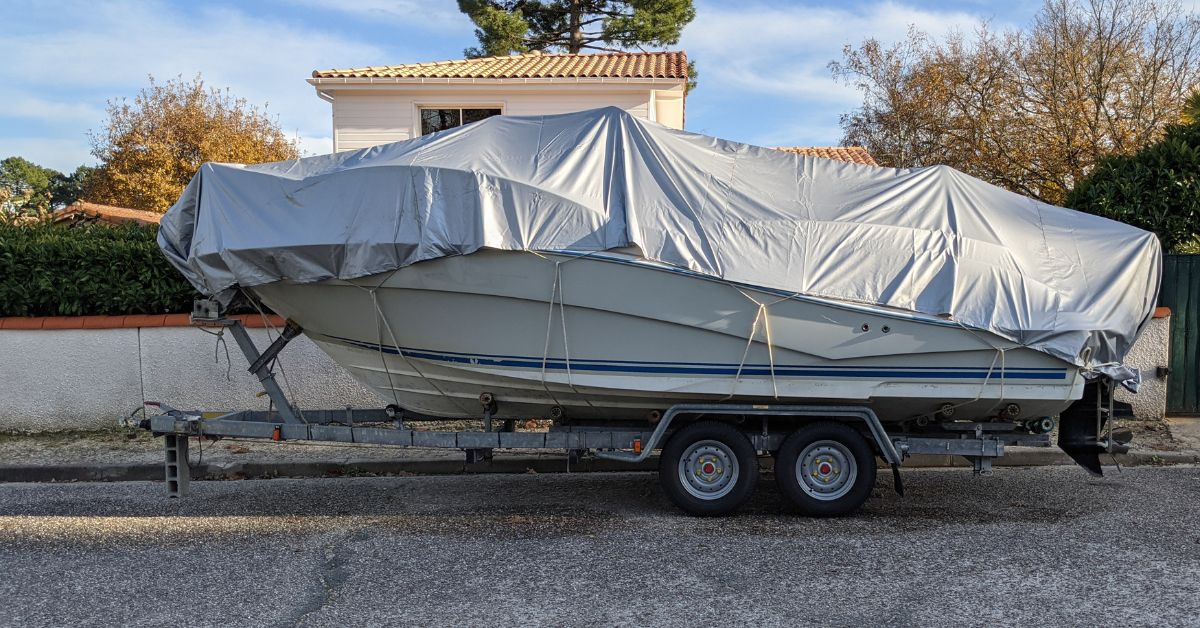Winter is fast approaching, and for boat owners, that means it’s time to start thinking about winter storage. Properly weatherproofing your boat during this time is crucial to ensure it remains in excellent condition when spring arrives. In this comprehensive guide, we will take you through the essential steps and precautions you need to take to protect your beloved vessel during the harsh winter months.
Why Winter Boat Protection Matters
Your boat represents a substantial investment, and the significance of proper winterization cannot be overstated. It plays a pivotal role in preserving the longevity and overall performance of your vessel. Neglecting to address the challenges posed by freezing temperatures and moisture during the winter months can result in expensive damages. Thus, winter boat protection becomes a paramount concern for boat owners who wish to safeguard their valuable asset.
Choosing the Right Storage Location
Selecting the right storage location is the first crucial step in winterizing your boat, and the choice of storage method can significantly impact your boat’s condition during the winter months. There are several options to consider.
Indoor storage, such as in a heated storage facility or garage, provides the best protection against the elements. It shields your boat from freezing temperatures, moisture, and harsh winds, ensuring it remains in optimal condition during the winter.
Another option is dry stack storage, which offers covered protection for your boat. While not as ideal as indoor storage, it still provides a layer of defense against the winter weather, safeguarding your vessel from snow, ice, and debris.
If indoor or covered storage isn’t available, shrink-wrapping your boat is a viable alternative. A tight, secure shrink-wrap can effectively keep your boat protected from the elements, including snow, ice, and debris.
When deciding on the storage method, it’s essential to consider factors such as your budget, the size of your boat, and the local climate. Choosing the right storage option ensures that your boat remains in excellent condition throughout the winter, ready for your next maritime adventure when spring arrives.
Cleaning and Maintenance
Before storing your boat for the winter, it’s crucial to give it a thorough cleaning to ensure it remains in top condition during the colder months. Your cleaning and maintenance routine should focus on several key areas.
Begin with hull cleaning, where you’ll want to scrub the hull to remove any algae, barnacles, or other marine growth that may have accumulated. This step is essential as these growths can cause damage if left unchecked. Additionally, it’s advisable to clean and wax the exterior of the hull to provide an extra layer of protection against moisture and potential corrosion.
 Next, turn your attention to the interior of the boat. Empty and clean the interior thoroughly. It’s essential to remove all personal items and food items to prevent odors from developing and to deter pests from taking up residence during the winter months.
Next, turn your attention to the interior of the boat. Empty and clean the interior thoroughly. It’s essential to remove all personal items and food items to prevent odors from developing and to deter pests from taking up residence during the winter months.
By adhering to these cleaning and maintenance tasks, you can significantly improve the chances of your boat emerging from winter storage in excellent condition, ready for your next maritime adventures when spring arrives.
Winterizing the Engine
Properly winterizing your boat’s engine is of utmost importance to prevent freezing and corrosion, ensuring your engine’s reliability in the upcoming season. If you lack experience in performing these tasks, it’s wise to consider hiring a professional to ensure the job is done correctly. Nevertheless, here are some general steps involved in winterizing your boat’s engine:
Firstly, it’s essential to drain all water from the engine, including the cooling system. Water left inside the engine can freeze during winter, leading to severe damage. By removing all traces of water, you reduce the risk of such issues occurring.
Secondly, add the appropriate marine antifreeze to the engine. This antifreeze helps to prevent freezing, which is especially crucial in regions with harsh winter conditions. It’s essential to use a marine-grade antifreeze to ensure it’s compatible with your engine and won’t cause any damage.
Lastly, don’t forget to change the oil and filter before storing your boat. This step is essential as it removes any contaminants that could cause damage during storage. Fresh oil ensures that your engine is in optimal condition when you’re ready to hit the water again.
By following these steps or enlisting the help of a professional, you can safeguard your boat’s engine from winter-related issues, ensuring it remains in excellent working order when you’re ready to set sail in the spring.
Protecting Electronics
Electronic components on your boat, including GPS systems, fish finders, and radios, can be highly sensitive to extreme cold and moisture, making proper protection essential. To safeguard these valuable electronics during the winter months, consider the following steps:
Firstly, for removable electronics, it’s advisable to take them inside your home for the duration of the winter. Store these items in a dry, climate-controlled area where they won’t be exposed to freezing temperatures or excess moisture, which could lead to damage.
For permanently installed electronics that cannot be easily removed, take measures to shield them from the elements. Covering them with waterproof covers or using specially designed protective sprays can help create a barrier against moisture and cold. This precaution ensures that your boat’s electronic systems remain in good working condition when spring arrives, allowing you to navigate and communicate effectively on your future boating adventures.
Covering Your Boat
Investing in a quality boat cover is essential for protecting your vessel from the elements. A snug-fitting cover will shield your boat from snow, ice, and rain. When selecting a cover, ensure that it is well-ventilated to prevent moisture buildup underneath, which can lead to mold and mildew.
Dealing with Moisture and Mildew
Moisture accumulation can pose a significant issue during winter boat storage, potentially leading to the growth of mildew and other problems. To effectively combat moisture and maintain a dry interior, consider the following measures:
Firstly, make use of moisture-absorbing products such as desiccants or dehumidifiers within your boat’s interior spaces. These products help draw excess moisture from the air, reducing the risk of dampness and mildew.
 Secondly, promote proper air circulation by periodically opening cabinets and lockers within your boat. This simple action can help prevent stagnant air and moisture buildup in confined spaces.
Secondly, promote proper air circulation by periodically opening cabinets and lockers within your boat. This simple action can help prevent stagnant air and moisture buildup in confined spaces.
Lastly, it’s essential to regularly inspect and replace moisture-absorbing products as needed to ensure their continued effectiveness throughout the winter storage period. By implementing these strategies, you can help safeguard your boat’s interior from the damaging effects of moisture, ensuring it remains in excellent condition for the next boating season.
Inspecting and Repairing Hull Damage
Before storing your boat, inspect the hull for any signs of damage or cracks. Repair any issues promptly to prevent them from worsening over the winter. Damaged hulls can lead to costly repairs and compromised safety when you’re back on the water.
Your Boat is Now Ready for Spring
Properly weatherproofing your boat during winter storage is a critical aspect of boat ownership. It ensures that your vessel remains in excellent condition, ready for another season of adventure on the water. Whether you choose indoor storage, dry stack storage, or shrink-wrapping, taking the time to clean, maintain, and protect your boat will pay off when spring arrives.
Remember that the specific steps for winterizing your boat may vary depending on the make and model of your vessel. Consult your boat’s owner’s manual or seek advice from a professional if you have any doubts about the process. With the right care and attention, your boat will weather the winter months gracefully and be ready for your next aquatic adventure.

